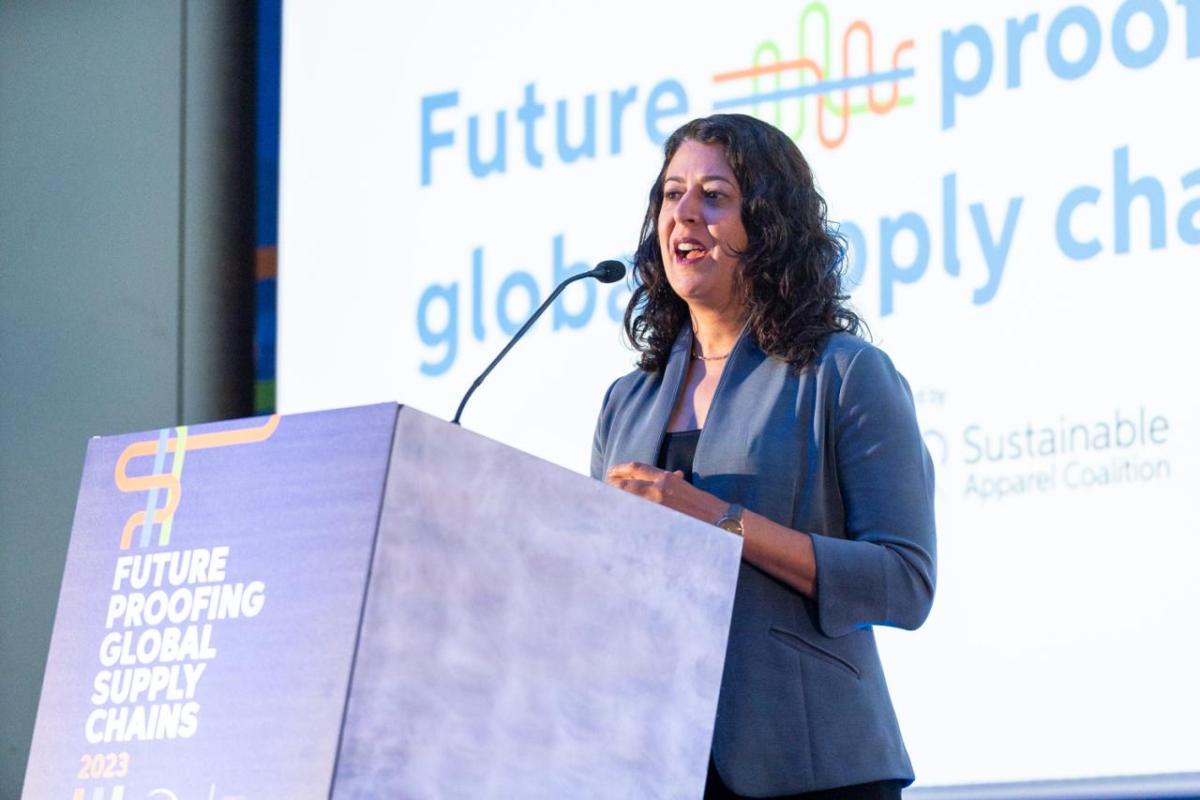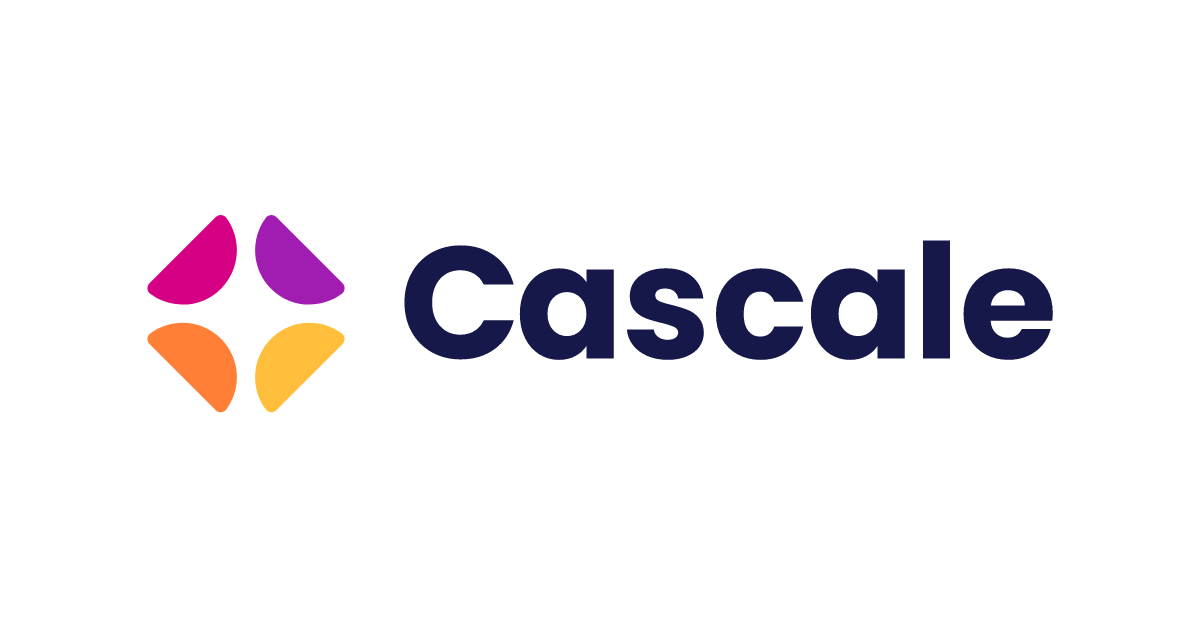Planet Textiles 2023: Industry Stakeholders Agree on Need To Accelerate Collective Action and Collaboration to Future-Proof Global Supply Chains

The Sustainable Apparel Coalition (SAC) opened the doors to Planet Textiles at the Fiera Milano Rho exhibition center from June 12 - 13, welcoming attendees to the 2023 edition of the event, which was being hosted at this year’s Textile & Garment Technology Exhibition (ITMA 2023), the world’s largest international textile and garment technology exhibition. Under the theme, Future-Proofing Global Supply Chains, the event took place over two days and brought together over 200 delegates to network with industry peers and share learnings and best practices on how collective action can help accelerate industry transformation and future-proof global supply chains.
SAC CEO, Amina Razvi, began her welcome address by asserting the importance of collaboration in creating transformational change within the textile and apparel industry. Reflecting on the recent reports by climate scientists, warning that our world's temperature could surpass the critical threshold of 1.5°C degrees for the very first time this year, Razvi highlighted the importance of future-proofing as the key to the well-being of millions of workers, their communities, consumers, and, above all, the planet we all rely on.
“Each and every one of us here today understands the complex and interlinked challenges before us. We share a steadfast commitment to fostering collective action, instigating change, and driving progress. So let’s seize the opportunity before us to create a more responsible, equitable, and just industry. By harnessing our collective vision, problem-solving abilities, and collaborative spirit, I am confident in our capacity to have a significant impact. I believe we can because I witness it every day within the SAC community,” Razvi said.
Razvi closed off her address with a call to action to attendees to join the SAC and support its initiatives and partners working to drive positive change and create a global industry that gives more than it takes - to people and the planet.
Zubeida Zwavel, Executive Director, Centre for African Resource Efficiency and Sustainability delivered the keynote addresses for day one of the conference. Andrea Rosso, Diesel Sustainability Ambassador, Diesel SPA and Kim van der Weerd, freelance consultant and host of the podcast Manufactured, delivered the keynote addresses for day two of the conference, respectively.
Zwavel shared how her experience growing up in Cape Malay, South Africa, working in her family-owned factory, influenced her journey into the field of sustainability. She highlighted the various projects she has been involved in, including working with the municipality in Hammarsdale on resource efficiency and waste minimization projects to reduce wastewater pollution from textile industries, and an eco-labeling project with the United Nations Environmental Programme among others. She highlighted the importance of building real partnerships and how, if we are to achieve the targets we’ve set, we must ensure key knowledge transfer, empowerment and, most importantly, compassion.
Rosso shared key aspects of Diesel’s responsible living strategy, lower impact material and circularity. On circularity, he highlighted the criteria established for each product, supplier and technology that the company follows in order to label their products with the responsible living tag. He stressed the importance of having standards across different stages of production - trim, fabric, fiber, treatment, etc - to empowering an organization’s requirement of the same of its suppliers before a final product comes in. He shared Diesel’s various innovative approaches to creating its products and projects such as Rehab Denim, as well as a pilot project with the United Nations Industrial Development Organization (UNIDO).
Van der Weerd’s keynote focused on the need to establish common ground to drive effective decarbonization efforts. She called for all stakeholders to collaborate deeply and with empathy to drive change across the industry.
Navigating the Legislation Landscape
Addressing legislation and its impact on the footwear and apparel sector, Baptiste Carriere-Pradal opened the panel discussion by providing an overview of the current landscape, upcoming regulations and potential impacts for companies and how they can prepare for them.
Maxine Bédat, Director, New Standard Institute weighed in on upcoming legislation from the USA, specifically the New York Fashion Act, stating that feedback from various stakeholders has been instrumental in ensuring the policy developed is implementable. She highlighted how the Act has taken into consideration the fact that companies need time to make the necessary investments in readiness for its implementation. She went on to add that legislators are keeping track of developments in the EU to ensure it aligns as needed, avoiding a patchwork approach in its development.
Ilishio Lovejoy, General Manager, ESG, Simple Approach, shared the important role legislation has to play and the opportunity it offers to level the playing field. Speaking on the Uyghur Forced Labor Prevention Act, she highlighted some of the challenges the industry is facing in implementing it because of a lack of clear understanding of the requirements and how to meet them as a new law and the various ways it can be interpreted.
SAC’s Senior Director of Public Affairs Elisabeth von Reitzenstein took to the stage moderating a panel that sought to take a deeper dive into the European Union (EU) proposed directive on substantiating green claims. Starting off by highlighting the purpose of the directive, she shared how it is intertwined with existing pieces of legislation and ongoing discussions around it in the European Union parliament and Council of the European Union, particularly on the need for a common methodology to ensure harmonization of legislation in the EU, and the opportunity to complete it before the European elections, slated for next year.
Jia Liu, Global Sustainability Director, TÜV Rheinland Group shared her perspective on the proposed directive as a certification testing company, highlighting one of the requirements of the directive will be that all claims be backed by a methodology based on scientific evidence and to ensure that everything claimed is based on a life cycle approach.
Jeremy Lardeau, Vice President, Higg Index, Sustainable Apparel Coalition called for companies to get ready for upcoming legislation and take the initiative to engage with relevant stakeholders and to understand the requirements such as preparing to understand and have better product and style level data. He also called for more recognition for companies taking the lead in investing in better sustainability performance practices.
Accelerating Action on Greenhouse Gas Reduction
This year’s Planet Textiles conference also featured a number of sessions focused on collective action towards tackling climate change. Jeremy Levin, Senior Energy Specialist, Global Thematic Lead, IFC Global Manufacturing; Kurt Kipka, Chief Impact Officer, Apparel Impact Institute; and Shuvajit Mandal, Advisor and Country Manager, GIZ joined Joyce Tsoi, SAC’s Director, Collective Action Programs, to discuss the industry’s progress towards decarbonization, challenges and opportunities to accelerate action.
Kipka highlighted the importance of accelerating action in a concerted and focused way and of ensuring engagement with the right stakeholder partners to minimize redundancy. He also spoke about the importance of collecting and sharing data points across the board.
Mandal shared insight on GIZ’s programs, highlighting three perspectives working to incentivize factories to shift to renewable energy: cost-advantage, where by a clear business case for factories will encourage the shift to renewable energy; energy security, where by factories are looking to tackle the energy crisis, by insuring the security and quality of their energy; and the commitment to climate protection goals by brands, in order to maintain good relationships with them.
Levin shared his perspective on how the industry can accelerate efforts towards decarbonization, stating that brands and stakeholders need to do more to accelerate and unlock existing financing to improve bankability of projects.
Role of Data in Sustainability
Begoña Garcia, Senior Product Manager, Jeanologia S.L.; Brooke Roberts-Islam, Founder, Techstyler & Senior Contributor, Forbes; Cerian Atwell, Senior Sustainability Manager, Marks & Spencer; and Michela Gioacchini, Fashion & Sporting Goods Lead Quantis Italy, Quantis joined Joël Mertens, SAC’s Director of Product Tools, to share the different perspectives on the importance of Life Cycle Assessment (LCA) data in the supply chain and what it means for manufacturers.
Atwell shared how Marks & Spencer is using LCAs to inform their business decisions in light of upcoming legislation, highlighting how it guides their raw material choices and conversion of their materials into more sustainable versions of the same. She asserted a key need within LCA tools was for a way to reflect the impacts of dyeing and finishing, which account for 52% of the impact according to the roadmap report by Apparel Impact Institute.
Gioacchini shared insight on the evolution of the LCA space stating that more companies requesting LCAs have matured and now understand the kind of data they are looking for, resulting in more specific questions to guide the primary data collection. She highlighted the EU Green Claims Directive driving the increased demand from companies for LCAs and corporate product footprinting to guide their external communications.
SAC Executive Vice President Andrew Martin and Global Fashion Agenda CEO Federica Marchionni, delivered closing remarks for day one of the conference, while SAC Vice President of the Higg Index Jeremy Lardeau and ZDHC Implementation Director Klass Nuttbohm delivered closing remarks on day two of the conference.
The Planet Textiles conference concluded with the announcement of a partnership between the SAC and Apparel Impact Institute on an initiative geared towards supporting efforts to accelerate and scale decarbonization programs to accelerate the reduction of greenhouse gas emissions across the entire industry. The announcement was a testament to the SAC’s commitment to collaborating with stakeholders to co-create and scale solutions that drive systemic change.
Purchase Planet Textiles 2023 session recordings to watch the various panel discussions that took place. We also invite you to share your feedback on Planet Textiles 2023 using this survey link.

